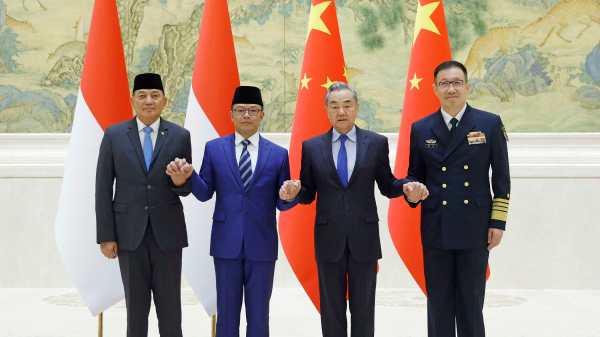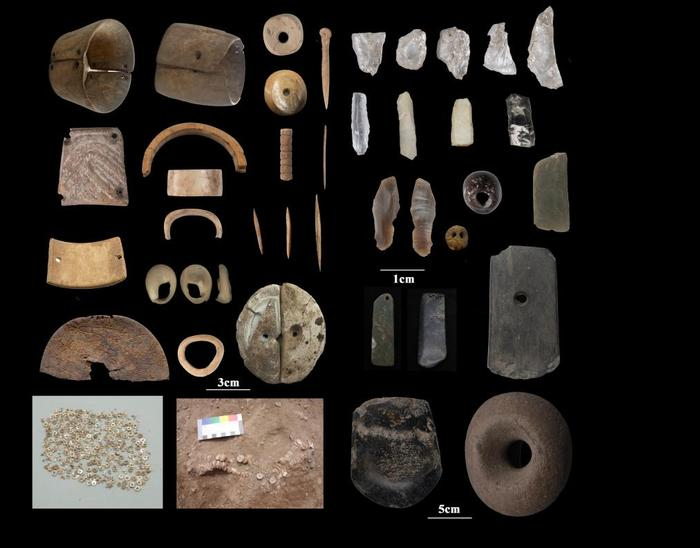
China, Indonesia Strengthen Strategic Partnership in High-Level Talks
China and Indonesia commit to deepening defense coordination and economic collaboration through new ministerial dialogue, reinforcing regional stability.
News & Insights Across Asia
Stay informed on China’s evolving landscape—from social topics and technological innovations to sports and major national events—highlighting its impact on the global stage.

China and Indonesia commit to deepening defense coordination and economic collaboration through new ministerial dialogue, reinforcing regional stability.

China and Indonesia strengthen collaboration in trade, tech, and infrastructure during high-level talks, marking 75 years of diplomatic ties and shared Global South priorities.

China and Azerbaijan launch 13 cooperative projects ahead of President Aliyev’s state visit, deepening economic ties and regional partnerships.

Rare glossy ibises, rarer than pandas, spotted in Qingdao’s wetlands, signaling ecological improvements from sustained conservation efforts.

Shanghai sees a surge in Thai tourists embracing social media-inspired travel itineraries, driving economic growth and cross-cultural engagement.

China’s private enterprises exceed 57 million, with 40% in new tech sectors. Government initiatives bolster growth and digital transformation.

China COSCO Shipping Corp. rejects U.S. accusations, warns restrictive measures threaten global shipping stability and supply chains.

Chinese and Italian artists merge music and technology in Hangzhou’s landmark bridge performance, showcasing cross-cultural innovation and smart tourism development.

Over 10,000 participants celebrated Mazu’s 1065th birthday in Fujian, honoring the UNESCO-recognized sea goddess’ cultural legacy and cross-regional connections.

Discover how former lion dance fans are reinvigorating the ancient art, blending tradition with modern creativity during Chinese New Year celebrations.

The centuries-old lion dance tradition strengthens cultural bonds between the Chinese mainland and Malaysia, blending heritage with modern multicultural dialogue.

Recent archaeological breakthroughs in Tibet trace 100,000 years of human activity, reinforcing the region’s integral role in China’s diverse yet unified cultural heritage.

China unveils its first 1,000 kW battery-powered locomotives with 70-minute fast charging, aiming to replace diesel engines in steel plants and drive industrial green transformation.

China expands service sector reforms to nine cities, aiming to boost innovation and global economic ties through streamlined regulations and investment incentives.

Chinese President Xi Jinping congratulates Gabon’s newly elected leader, highlighting strengthened bilateral cooperation and shared development goals.

China’s President Xi Jinping congratulates Daniel Noboa on his reelection as Ecuador’s leader, reinforcing bilateral cooperation amid growing economic ties.

China’s Commerce Ministry opposes US-led tariff deals undermining its interests, pledging countermeasures and warning of global trade instability.

Sun Yingsha retains ITTF World Cup title as Brazil’s Hugo Calderano makes history with men’s singles win, signaling shifting dynamics in global table tennis.

Chinese golfer Wu Ashun claims second Volvo China Open title in Shanghai with dramatic final-round rally, edging out international competitors.

China’s AG600 amphibious aircraft receives type certification, marking a breakthrough in the country’s emergency response and aviation capabilities.